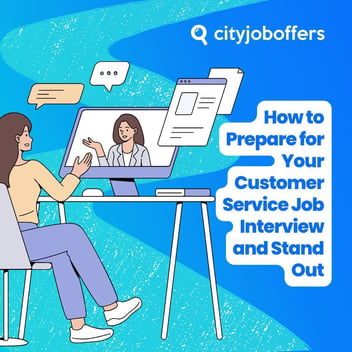
A successful job search plan starts by being clear about one thing: your résumé has only one goal—to get you a call for an interview.
With that in mind, the most effective way to become the candidate they call is to follow these steps:
1. Optimize Your Résumé
Be thoughtful about how your résumé is structured and ensure that it highlights the right keywords that match your professional skills. Use industry-specific terminology and tailor your résumé to each job you apply for. This helps recruiters quickly see your relevance to the role and increases your chances of passing applicant tracking systems (ATS). Highlight measurable accomplishments, like revenue growth or efficiency improvements, rather than listing tasks.
2. Create a Follow-Up Plan
Keep track of your job search activities—dates of contact with companies, interviews, and the portals you've registered on. Having a clear follow-up schedule helps you stay organized and motivated, turning the job search into a productive process. Use tools like spreadsheets or job search apps to set reminders for follow-ups, and don't be afraid to reach out to recruiters to express your continued interest. For example, you could send a follow-up message like:
"Hello [Recruiter's Name], I hope you are doing well. I wanted to follow up regarding my application for [Position Name]. I am very enthusiastic about the opportunity to contribute to [Company Name] and would love to discuss how my skills align with your needs. Please let me know if there are any updates or if you need any further information from me."
Persistence shows enthusiasm and dedication.
3. Maintain a Strong Online Presence
Be active on professional social networks, as this is where recruiters go to learn more about you. LinkedIn, in particular, should be well-optimized, since recruiters will often use it to validate your experience beyond your résumé. Ensure that your LinkedIn profile picture is professional, your headline is compelling, and your summary effectively communicates your value. Engage with content relevant to your industry—commenting on posts, sharing articles, and even publishing your own content helps you stand out as an engaged professional. If applicable, consider other platforms such as GitHub for showcasing your projects or a personal website to provide a more comprehensive view of your work. Remember, your online presence is an extension of your personal brand.
4. Keep Learning and Networking
Attend courses, webinars, and events where you can meet people in similar situations, share experiences, and stay positive. Upskilling is crucial—taking courses relevant to your industry shows recruiters that you are proactive about your growth. Additionally, being surrounded by motivated, enterprising people will help keep your spirits up and your energy focused. Join online communities or local groups related to your field, as these can provide support, insights, and even job leads. Examples of popular online communities include Reddit, Stack Overflow for tech professionals, or specialized LinkedIn groups for various industries.
5. Step Outside Your Comfort Zone
Get out of the house, observe different perspectives, and think creatively about how you can improve yourself and your job prospects. Volunteer for causes that align with your values or take on freelance projects—these experiences can help you gain new skills, expand your network, and demonstrate initiative. Employers value candidates who are adaptable and continuously pushing their boundaries.
6. Practice Interview Skills
Preparing for interviews is just as important as sending out applications. Research common interview questions for your industry and practice your responses. Make sure you understand the company, its culture, and the specifics of the role you are applying for. Mock interviews with friends or career coaches can help you refine your answers and build confidence. Remember, the goal is not just to answer questions but to demonstrate how you are the perfect fit for the company.
7. Take Care of Your Well-Being
Job searching can be challenging and emotionally taxing. Make sure to take care of your mental and physical health during this time. Set realistic goals for your job search each day, take breaks when needed, and engage in activities that help reduce stress, such as exercise, meditation, or hobbies. Seek support from friends, family, or professional counselors if the process becomes overwhelming. A positive mindset will help you stay resilient and focused on your journey.
Stay positive, stay proactive, and let's go find that dream job!
Marycel Mercado


